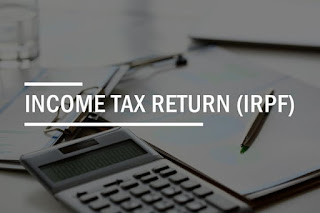Tax and minimum wage - today's news
The current Spanish Government is a coalition. That coalition can usually garner support from other parties to approve its legislation, but not always. Today, one of the news stories was about a row within the two parties that make up the Government. Yolanda Diaz, from SUMAR, has done a deal with the Unions to put the minimum wage up to 1,184€ per month. Because there are 14 payments in the Spanish year that's a total income of 16,576€ per year. At the moment the minimum wage is 15,876€. Yolanda Diaz also pushed through legislation which dropped the working week from 40 hours to 37.5 hours for the same pay. The majority party in Government, the Socialists or PSOE, argue that, as the minimum wage is now a reasonable income, it should be taxed like other incomes. SUMAR argues that as it is still a low income the workers on it should be offered more protection. In recent years the minimum wage has been exempt of the IRPF or income tax.
This news confused me because I know that Spanish income tax (IRPF) is paid in earnings bands with different percentage rates. The lowest rate, on taxable income between 1€ and 12,450€, is 19%. The next band goes from 12,450€ and 20,200€. The tax on that is 24%. There are other tax bands, the highest is for incomes of 300,000€ or more which are taxed at 47%. If the lowest tax rate was 19%, and that applied from the first euro earned, how could a wage be tax exempt?
I also knew that there were tax allowances. For someone under 65 it's 5,550€, increasing to 6,700€ for over 65s and 8,100€ for the over 75s. There are other tax allowances too, for dependants and for married couples. The bit I didn't know was that if the total taxable income was below the minimum wage then there was no tax to be paid at all. Even now that seems a bit odd as it clashes with the idea of the various tax bands.
And that's the change. Presuming that the legislation goes through, in the tax year 2025 even the people on minimum wage will be taxed. As we are just about to have the pleasure of paying our tax bills for the tax year 2024 the rest of this explanation uses 2024 as an example.
1. Exemption for incomes below the minimum wage
Individuals earning up to the annual minimum wage do not have to pay IRPF. In 2024, this exemption threshold was set at 15,876€, equivalent to the annual minimum wage. So, people on low incomes, particularly those earning at or below the minimum wage, are not subject to income tax.
2. The 19% Tax Band
The first €12,450 of taxable income is subject to a 19% tax rate under Spain's sliding scale tax system. Taxable income is calculated after subtracting personal allowances (the 5,550€ and so on) and other deductions. Because of the personal allowances and the exemption for incomes below the minimum wage, many low-income earners do not reach the taxable income level where this 19% rate applies.
3. How the exemption and the 19% tax band Interact
There is an apparent dichotomy which arises because the 19% tax band starts at €0. In practice, no one pays this rate on their first €12,450 of gross income unless their earnings exceed both the personal allowance and the minimum wage.
For instance: A worker earning €15,876 (the minimum wage in 2024) would subtract their personal allowance (€5,550 for someone under 65), leaving a taxable income of €10,326. Since this taxable income is below the exemption threshold (€15,876), they pay no IRPF.
If their gross income exceeded the exemption threshold, for instance if they earned €16,000, they would begin paying IRPF on their taxable income above €5,550. That would mean they would have 10,450€ of taxable income. That figure falls within the 19% tax band (which goes up to 12,450€) so they would pay 1,985.50€ in taxes. (10,450 x 19%)
You can see that, in this case, a small increase in gross pay produces a significantly increased tax bill.
You can also see that there are two possible arguments about whether people should pay tax on their total income or not. The one that has won, at the moment, the PSOE one, is that the personal allowances and the tax bands provide a fair taxation system without needing any extra protection for those on the lowest wages. The PSOE reckons that only about 20% of the people on minimum wage will pay any tax in 2025 and those will generally be single people without dependants.




Comments
Post a Comment